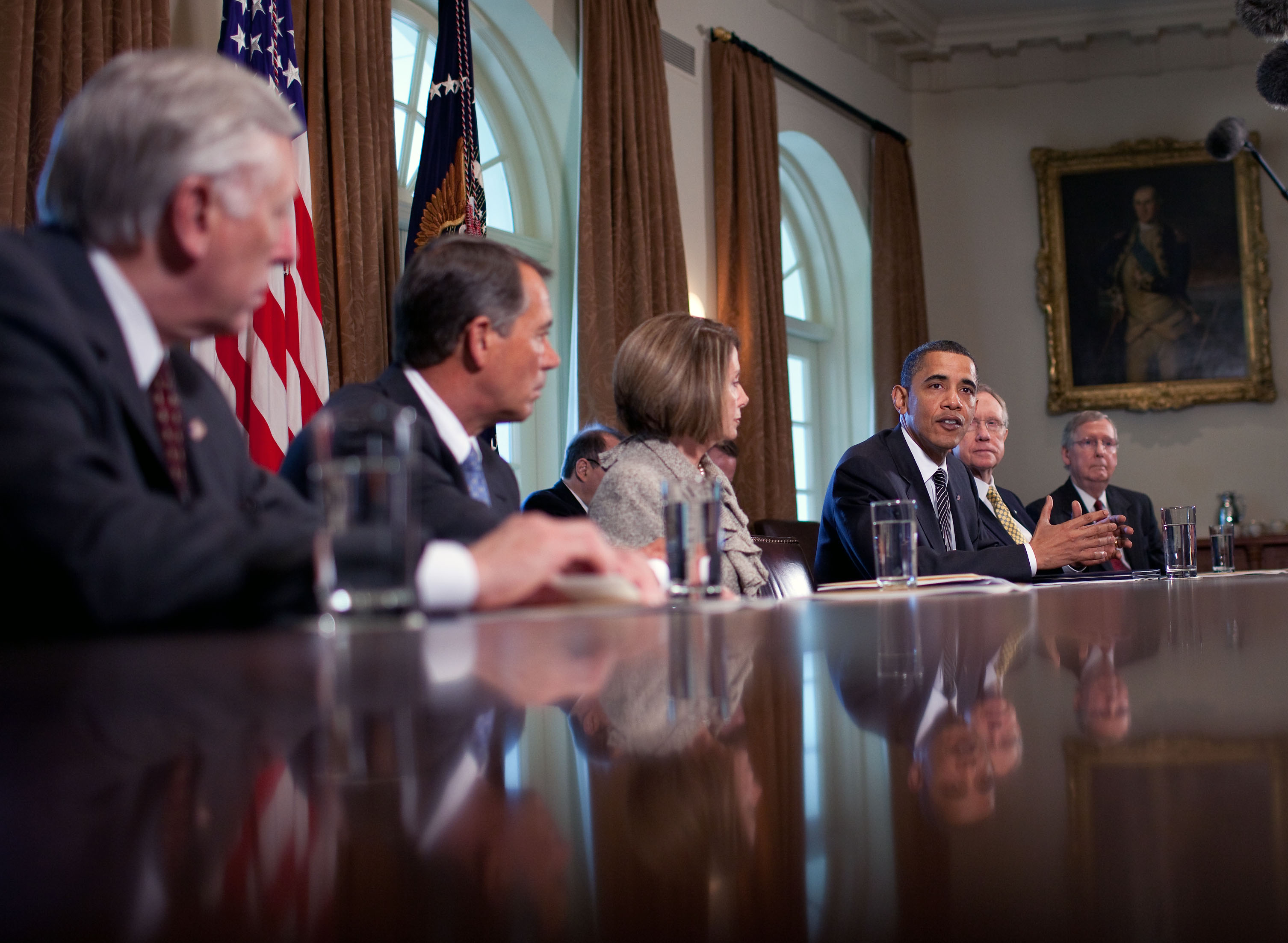
This morning the President welcomed leaders from Congress of both parties to the White House to discuss the economy, the Supreme Court, and the New START Treaty -- but he promised beforehand that the central focus would be Wall Street Reform:
I'm also going to be interested in talking to them about our ability to move quickly on a financial regulatory reform package. I think all of us recognize that we cannot have a circumstance in which a meltdown in the financial sector once again puts the entire economy in peril, and that if there’s one lesson that we’ve learned it’s that an unfettered market where people are taking huge risks and expecting taxpayers to bail them out when things go sour is simply not acceptable.
As a consequence, I am actually confident that we can work out an effective bipartisan package that assures that we never have “too big to fail” again; that consumers are adequately protected when it comes to financial instruments -- whether it’s mortgages or credit cards or debit cards; that we have a strong mechanism to regulate derivatives, something that we have not had, a derivatives market that is in the shadow economy but is enormously powerful, enormously risky -- we want to get that into daylight so that regulators and ordinary Americans know what’s going on when it comes to this huge segment of the financial system.
And I am confident that if we work together diligently over the next several weeks that we can come up with a package that serves the American people well and does not put Americans ever again in a position where they’re having to choose between a terrible economic situation or rewarding people for failed policies and bad risk-taking. And so that's going to be a top priority of this meeting.
UPDATE: Press Secretary Robert Gibbs gave the following readout on the meeting:
The President reiterated his belief that we are open to ideas and eager to work with anyone who is willing to work with us regardless of party. He also made clear that bipartisanship should not be equated with an openness to lobbyists loopholes and special interest carve outs and that he would be unwilling to negotiate on some key issues. And that he could not accept bad policy in pursuit of bipartisanship.
He specifically pushed attendees on derivatives and the recent effort by the financial industry to pressure the Senate to weaken oversight over the same financial products that led to the near collapse of AIG warning that the problems of the future will rest on the steps we take to address derivatives now. He reminded attendees that we proposed a bill almost a year ago and almost two years have passed since the financial industry nearly hit rock bottom, and that Wall Street accountability is long overdue.
In addition, he reaffirmed his belief that we must end taxpayer bailouts, end “Too Big To Fail” and that he would not accept a bill that did not pass that test. Finally he talked about the need for consumer protections and his insistence that the final bill include real independence reminding attendees that a bill that was good for powerful insiders, but not for everyday people is not what the American people deserve.
As he has with other opponents of reform, the President also encouraged attendees to stop the campaign of misinformation being run by financial industry lobbyists and representatives of trade groups. He asked both parties to work together and reminded them that the American people have been through enough—that they deserve quick action on real reform.
The President also reiterated the importance of moving forward on additional assistance for small businesses. Finally, he provided copies of the CEA quarterly report on the American Recovery and Reinvestment Act and encouraged those in the room who opposed the Recovery Act to review the findings that it is responsible for approximately 2.5 million jobs through the end of March of this year, putting the Recovery Act on track to save or create 3.5 million jobs by the end of this year.



